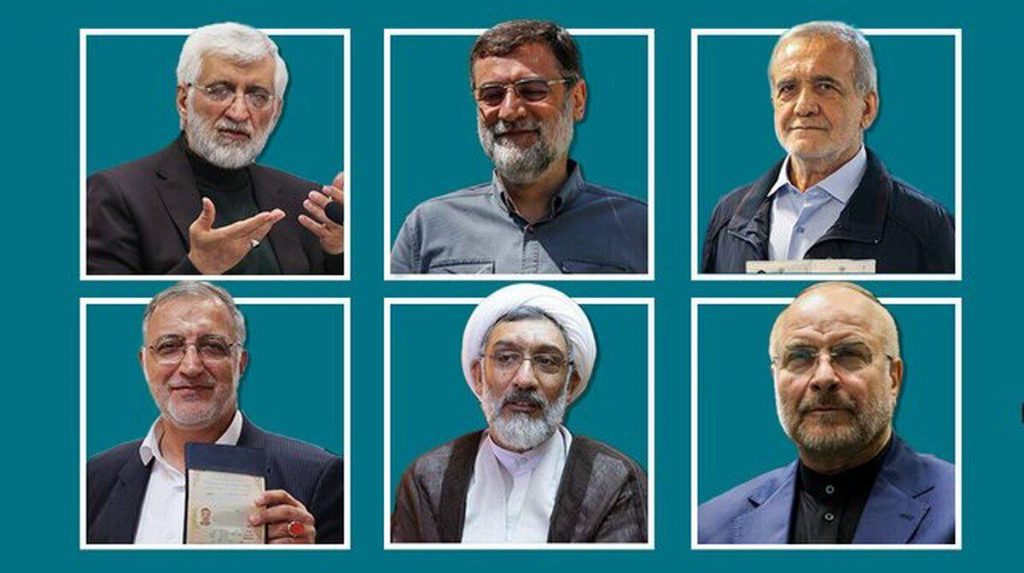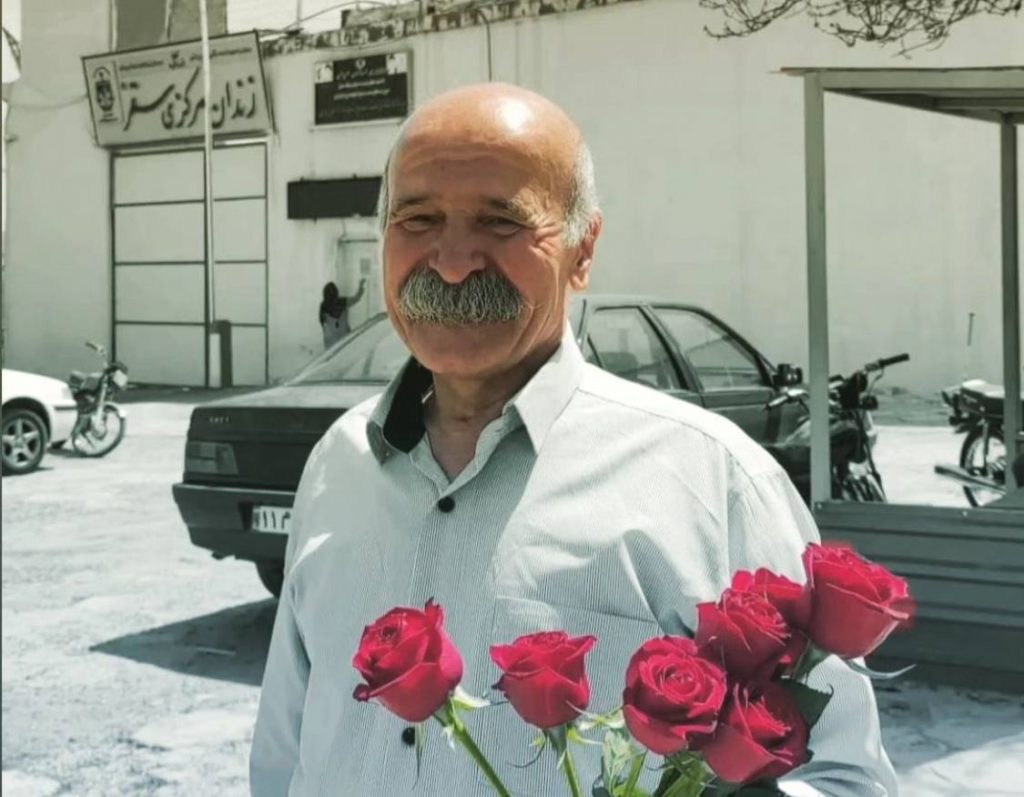
Yesterday, the Guardian Council announced the names of six men who have been approved to run in the upcoming presidential election. These candidates are: Masoud Pezeshkian from the sidelined faction, Mostafa Pourmohammadi, who, along with Raisi, was a member of the 1988 death committee, Saeed Jalili, Alireza Zakani, Amirhossein Ghazizadeh, and Mohammad Bagher Ghalibaf. Notably disqualified were former allies of Khamenei, such as Ahmadinejad and Larijani, who have recently fallen out of favor. The inclusion of Mostafa Pourmohammadi among the approved candidates, whether he is appointed or not, signals that the regime intends to convey to the Iranian people that Raisi’s path as the executioner of 1988 will continue.
There is no doubt that, as always, this election will be a staged and engineered spectacle. The individual who is supposed to emerge as the winner has already been selected. There is also no concern about voter turnout, as the regime will manipulate it to suit its needs. All indications point to this election being one of the most unprecedented and widely boycotted in the 45-year history of the Islamic Republic.
However, this electoral show is taking place under very difficult conditions for the regime. The Islamic Republic can no longer rule with its previous methods of deception and repression, and it lacks the support of the vast majority of people. Economic hardship, unemployment, inflation, and dire living conditions have brought people to their breaking point. The current economic situation of the people is unparalleled in any period of this regime’s existence, making the continuation of these conditions unbearable. The regime is incapable of making any reforms to improve the lives of the people and sees any concession to their demands as a threat to its survival. The regime’s support base among its loyalists has shrunk significantly, and the core of power is increasingly paranoid and purging even its closest associates.
The stance of the protesting public towards this staged election is not just a boycott but a condemnation of participating in this farce. In reality, what is being held as the presidential election this July is nothing more than a pledge of allegiance to Khamenei and submission to the Revolutionary Guard’s strategy to maintain the Islamic Republic.
For the majority of Iranians, the Islamic Republic is akin to other Islamic regimes in the region like ISIS, the Taliban, and Hezbollah, with the difference being that this regime has had more time to inflict its venom on the society and the region, imposing widespread misery on the lives of the Iranian people and the area. Plunging 70% of the population below the poverty line in a country rich in natural resources, depriving citizens of basic freedoms and social rights, mass killings, torture, executions, terror, imposing the most reactionary laws on women and on the lives of the populace, hostility to the fundamental freedoms of oppressed nationalities, and the disastrous spread of social harms are the hallmarks of 45 years of the Islamic regime’s rule.
The unique aspect of this election compared to previous ones is that this time, voter turnout and the façade of democracy are not the regime’s priorities. They will manage and engineer participation with familiar tactics. Their focus is on preparing various levels of the regime for the decisive confrontations they anticipate.
The Islamic Republic has adopted a new strategy for its survival. While in the past deception played a role in their strategy, today the primary reliance is on direct threats, intimidation, and repression. How long they will have the opportunity to implement this strategy in its new dimensions, and whether it will be effective if implemented, remains questionable. Following the massacres of December 2017 and November 2019, they were unable to intimidate the protesting public, which led to the emergence of the “Women, Life, Freedom” revolution. During the Jina Revolution, thousands were arrested, over 600 were killed, and tens of thousands were injured. Yet, even such extensive repression did not deter people from pursuing their slogans and demands. Now, the continuation of this revolutionary momentum is evident in the courageous resistance of women against compulsory hijab, the strikes of workers and retirees, and the bold actions of justice seekers.
Today, the regime sees its success in conducting this so-called election peacefully. They are not concerned about long lines at polling stations. The Revolutionary Guards, Basijis, military personnel, segments of the regime’s operatives, and their families are always available for a minimal show, which will suffice this time without facing the problem of “Where is my vote?”
The people will not vote for a corrupt regime that, in its 45-year rule, has driven more than 70% of Iranians below the poverty line and has nothing but deprivation, denial of basic human rights, torture, terror, and mass murder in its record.

